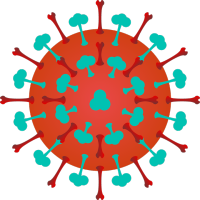| pattern | Strong Stomach, Weak Spleen |
The syndrome of stomach heat and spleen deficiency refers to the symptoms and signs caused by excessive stomach function in digesting food and weakened spleen function in transportation and transformation, resulting in stomach heat and spleen deficiency. It is often caused by overeating rich and sweet foods, parasitic infestation, or heat accumulation in the middle energizer.
The main clinical manifestations of this syndrome include swift digestion with rapid hunger, emaciation, epigastric upset, abdominal distension and fullness, loose stools or diarrhea, restlessness, dizziness, jaundice, pica, dry and brittle hair, yellow tongue coating, red tongue texture, and a fine, wiry, and rapid pulse.
The syndrome of stomach heat and spleen deficiency is commonly seen in diseases such as "jaundice" and "infantile malnutrition" in children.
This syndrome should be differentiated from the "pattern of stomach heat."
bubble_chart Differentiation and Treatment
The syndrome of strong stomach and weak spleen can be seen in various diseases, with different clinical manifestations.
- If it appears in "jaundice," symptoms include epigastric upset, abdominal distension and fullness after eating, irritability, dizziness, and loose stools. Prolonged cases may develop into jaundice, referred to as "dietary jaundice" in the "Jin Gui," often caused by excessive stomach heat and diarrhea due to spleen deficiency. Leizheng Zhicai said: "Excess in the stomach leads to stuffiness and heat, while spleen deficiency causes fullness after eating." Treatment should focus on regulating the spleen and stomach, promoting digestion to harmonize the middle, with the formula Minor Bupleurum Decoction (from the "Treatise on Cold Damage") plus White Atractylodes Rhizome, Submature Bitter Orange, and Gardenia.
- If the syndrome of strong stomach and weak spleen appears in "infantile malnutrition," symptoms include muscle wasting, sparse and dry hair, blurred vision, abdominal distension with visible veins, craving for food, foul-smelling stools, turbid urine, restlessness, nose rubbing, clothes biting, and pica. This is due to postnatal imbalance, excessive consumption of rich and sweet foods, prolonged food retention, parasitic infections, or excessive use of medications, leading to spleen deficiency and stomach heat depleting fluids. Xiao'er Yaozheng Zhijue states: "Malnutrition is a disease of the spleen and stomach, caused by fluid exhaustion." Treatment should focus on digestion, or a combination of digestion and tonification, or primarily tonification, using Dong's formula for infantile malnutrition with accumulation (from "Pediatric Aphorisms") with modifications.
The appearance of the strong stomach and weak spleen syndrome indicates damage to the spleen and stomach. In the progression of the disease, stomach heat may deplete fluids, leading to consumptive thirst, excessive drinking, swift digestion with rapid hunger, and frequent urination. Prolonged damage to the spleen and stomach may also lead to the decline of middle qi and depletion of original qi, resulting in emaciation, shortness of breath, lack of strength, sweating upon exertion, loss of appetite, listlessness, and severe symptoms of stomach qi exhaustion.
bubble_chart Differentiation of Similar Patterns
- Pattern of stomach heat and the syndrome of strong stomach with weak spleen: The stomach governs reception and the decomposition of food, while the spleen governs transportation and transformation. Both work in coordination to participate in the digestion and absorption of food in the human body. However, each has its own normal physiological functions, and clinically, they can manifest as separate disorders or simultaneously influence each other as cause and effect. The pattern of stomach heat refers to the condition caused by excessive consumption of spicy and hot foods, or liver fire attacking the stomach transversely, leading to pathogenic heat stagnating in the stomach and causing symptoms such as epigastric distending pain, thirst with a preference for cold drinks, rapid digestion with frequent hunger, acid regurgitation, epigastric upset, foul breath, constipation, gum pain, red tongue with yellow coating, and slippery and rapid pulse. The key points for differentiation from the syndrome of strong stomach with weak spleen are: both exhibit clinical manifestations of stomach heat, but the former shows more pronounced heat signs than the latter; the latter is characterized by obvious spleen qi deficiency and symptoms of impaired spleen function, such as loose stools and abdominal distension after eating. The former primarily involves the stomach, while the latter involves both the stomach and spleen.
- Jingui Yaolue: "Yangming disease, if the pulse is slow, it is difficult to be satiated with food. If satiated, it will cause irritability and dizziness, and urination will definitely be difficult. This is about to develop into dietary jaundice. Even with purgation, abdominal distension and fullness remain the same. The reason for this is the slow pulse."
- Medical Insights: "If one eats well and is easily satiated, and every time after being satiated, there is distension, it is due to strong stomach and weak spleen."
- Dongyuan Shishu: "There are those who eat well but are thin. This is because the stomach harbors fire pathogen, which allows them to eat at the qi aspect, but spleen deficiency causes muscle wasting and poor digestion."







